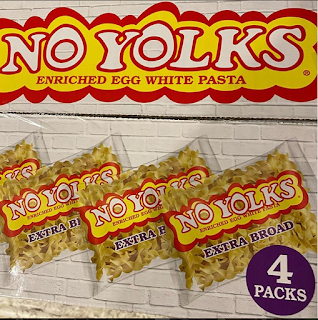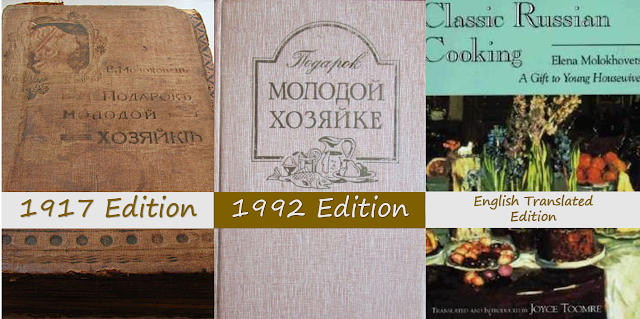Beef Stroganoff
(Updated 1/18/2024)
We're trying out something new! Today, we're inviting
you into our kitchen. I mean, really, with a name like "Wolfe
Stew" it was only a matter of time before we did. And we’re excited
to have you here! So, come on in, pour
yourself a beverage, and feel free to either sit back and relax, or jump up and
join in.
For our first food blog, we’re bringing out an old favorite
– Beef Stroganoff. It’s a throwback
to childhood for both of us, so also a comfort food. While it’s not our mother’s stroganoff, we do
serve it the same way: on top of egg noodles with a side of green
beans.
The Inspiration
If you follow us on social media, you’ve likely already seen
this picture:
There’s actually a story behind it, which much to
your delight, you get to hear now. Prior
to the Mr. posting this, I had posted the following pic:
Call it an experiment, the Mr. wanted to know which one
would engage our audience more: food (and more specifically a box of well-known, but simple, factory-created food) or education (and more specifically a
brand-new, but complex, self-created resource). Which do you think won? Actually,
it was a tie. But regardless, these
results intrigued us and pushed us into this space: sharing Our Kitchen on
Wolfe Stew.
People seem drawn to food. It’s a commonality we all share - we must eat. But it’s more than that: food impacts us
emotionally, socially, and physically. Stroganoff, thus, seems a logical place to start, being the motivating
factor behind starting the food talk at Wolfe Stew.
If stroganoff is a common menu item in your household too,
I’d wager a bet you make it differently than we do, and we’d love to hear your
take on it. Indeed, the egg noodle
picture alone elicited an unsolicited stroganoff recipe from one of our Facebook friends.
Our stroganoff recipe comes from a book fair book (teacher
life) that currently resides in a box in our garage. Yet the recipe lives on! I sometimes wonder
if our recipe would indeed be the same as the one in the book, should I ever
happen upon it again. But who knows if
that day will ever come. So, for now, call ours an inspired recipe. And should I ever once again find the book, I'll update you on how much our recipe varies from the original.
This recipe is a crockpot recipe, which I love. It is so convenient to dump in all the ingredients, set it to low and let the magic happen - leaving me to work on other
things. And, when both of us worked
outside of the home, we would return home to dinner done. What a wonderful welcoming! To make dinner preparations even easier on
me, I would even prep the crockpot the night before. Then, all I had to do on a busy morning is
place the ceramic pot in the base, plug it in, set it to low, and go. Easy-peasy, no-fuss morning meet a
well-planned, homemade dinner.
The Recipe
Here’s how you do it (Pardon my imprecise measurements. If it drives you crazy, I’m truly sorry. It’s just the way I cook.):
In a crockpot, distribute half of a thinly sliced London
broil. Add a container of mushrooms and
an entire, finely sliced, onion (more or less of each depending on the unique
tastes of your family). Across the top,
sprinkle a packet of onion soup mix and empty a can of cream of mushroom
soup. Let the crockpot work its magic
for eight hours on low heat.
Right before serving, stir in a cup of sour cream and
parsley (more if fresh, less if dried) to taste. Serve on a bed of egg noodles with a side of
green beans.
If you’d like the recipe on paper, click here.
If you’re chomping at the bit to share your secret tips, ingredients,
alternate cooking methods or sides, you’re free to jump on down to the comment
section below and do that now. We
honestly cannot wait to hear the variety you have to offer.
If, however, you’re content to just keep reading, we’re
content to keep entertaining.
The History
Next, we’d like to delve into the history of Stroganoff. Stroganoff originated in Russia around the
mid-nineteenth century from a family of its own name. Purportedly, Count Grigory Stroganov
suffered from bad teeth. To ease the
process of eating, his French chef (a symbol of Russian nobility of the time),
chopped the beef into small cubes, dredged it in flour, and cooked it in a
cream sauce to help it go down more easily (Eremeeva; “Beef Stroganoff”).
Stroganoff’s cookbook debut appeared in A Gift to Young
Housewives by Elena Molokhovet, according to Wikipedia. Molokhovet’s cookbook was the most successful
cookbook of its time, continuously revised from 1861-1904. With recipes
ranging from suckling pig to vodka, and tips spanning cooking techniques to servant relations, this book was a definitive household resource. While once considered outdated, modern versions reemerged in 1992 and 2003.
Check out the similarities and differences between
stroganoff then and now.
Stroganoff made its way to the United States during the time
of World War II. At that time, Russian
and Chinese immigrants started serving it in restaurants. It was a hit!It gained household popularity in the
1950’s and remains a favorite in some American homes today.
We’d love for you to weigh in: Is stroganoff popular in your
home? How does your version differ? What are your thoughts on the origin and evolution
of stroganoff?
With Love from Our
Kitchen,
Did this post leave you hungry for more? If so, you'll want to check out "Our Kitchen." That's the room at Wolfe Stew where we serve ideas from Our Kitchen and ask you to share ideas from yours.
References
- “A Gift to Young Housewives.” Wikipedia: The Free Encyclopedia, Wikimedia Foundation, Inc., 9 Jan. 2020, en.wikipedia.org/wiki/A_Gift_to_Young_Housewives. Accessed 27 Feb. 2020.
- “Beef Stroganoff.” Wikipedia: The Free Encyclopedia, Wikimedia Foundation, Inc., 19 Feb. 2020, en.wikipedia.org/wiki/Beef_Stroganoff. Accessed 27 Feb. 2020.
- Eremeeva, Jennifer. “The Definitive Beef Stroganoff: In Honor of Men and Sour Cream.” The Moscow Times, 20 Feb. 2019, www.themoscowtimes.com/2019/02/20/the-definitive-beef-stroganov-a64566. Accessed 20 Feb. 2020.











Comments
Post a Comment
Thank you for adding your flavor to the stew.